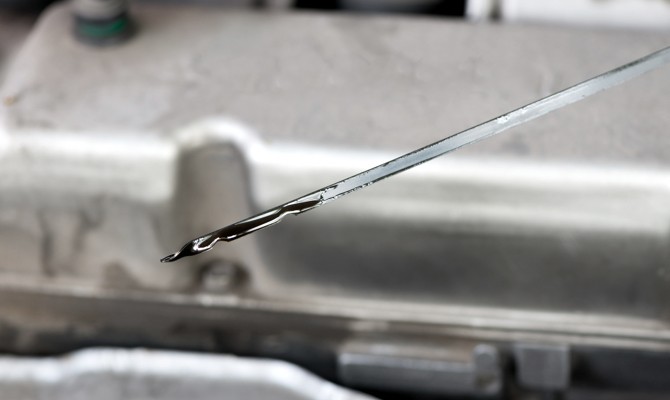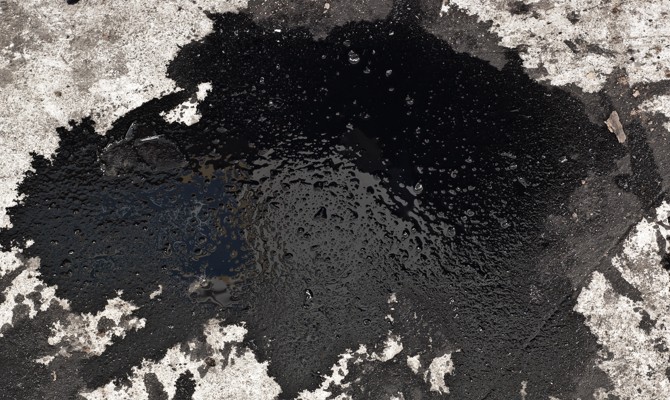Preventing oil leaks
Your vehicle’s engine relies on motor oil that is recirculated throughout the engine to keep everything running smooth. If any of the oil leaks out, it can lead to engine damage. Preventing the oil from leaking out is a variety of gaskets and seals. Simply put, gaskets are your engine’s last line of defense for preventing leaks.
If you discover oil spots in your garage or driveway, it needs to be investigated to determine if a gasket or seal has failed and is no longer doing its job. Read on to learn why gaskets and seals can develop leaks and which gaskets are most susceptible to leaking oil.
Why do gaskets leak?
Gaskets are required do their jobs inside of your engine, which is a pretty hostile place to work. Constant exposure to high temperatures, high pressures, vibrations and contact with hot fluids over a period of time will cause even the best gasket or seal to develop leaks. Except for very rare cases of catastrophic failure, gasket leaks start out as small drips that you may first notice as spots under your car. These may lead to unsightly stains that appear on your parking spot and eventually become more prevalent if not taken care of.
There is a natural tendency to dismiss the importance of small leaks of oil and put them on the list of things to fix later – but resist putting it off. Even small leaks can mean big expenses down the road if they are ignored. What starts out as a relatively easy fix can quickly turn into a major issue. Even a small leak can cause you to lose a quart of oil in no time.
Low oil levels can cause engine problems

Driving with low or no oil is a recipe for expensive repair bills. Many drivers don't realize that driving with low oil level can cause high engine temperatures. Higher engine temperatures will break down the lubrication ability of the remaining oil, causing damage to and excess wear of pistons, piston rings, valve lifters and engine bearings. The high engine temperatures may exacerbate the leakage of the gasket, creating a spiraling series of events that will impact your wallet with a hefty repair bill.
Common source of oil leaks: valve cover gasket
The best place to start tracking down the source of an oil leak is with the valve cover gasket, perhaps the most common source of engine oil leaks. Valve covers are typically made of lightweight aluminum, or magnesium, plastic composite or stamped steel and may warp over time, so the surface that mates with the cylinder head is no longer flat, creating oil leaks. In addition, the lightweight material can be deformed by excessive torque on the fasteners holding it in place.
If there is no structural issue with your valve cover, the gaskets may take a compression set where they no longer can provide proper sealing. The gasket will lose some of its elasticity over time and does not maintain its’ original sealing ability.
If there is an overabundance of dirt around the valve covers, use some degreaser and some rags to clean the area so you can see bare metal near the valve cover/cylinder head joint. Check the area after running the engine for a bit and you’ll be able to see if the valve cover gasket is leaking. If this area is leaking, we recommend against trying to tighten the cover’s fasteners. Overtightening may distort the valve cover and gasket, making the leak worse. Many covers of today have load stops built into them so tightening the cover will not help.
Other sources of oil leaks

If the valve cover gasket is not the source of your oil leak, the following gaskets or seals may be likely sources:
- Oil drain plug seal
- Oil pan gasket
- Front and rear crankshaft seals
- Camshaft seals – overhead cam engines
- Timing cover gasket
- Intake manifold end seals
- Cylinder head gasket
- Oil filter adapter/oil cooler base gaskets
Final thoughts
If you are experiencing an oil leak, consult your professional technician. They’ll be able to not only diagnose the problem but complete the necessary repairs. Before you know it, your garage will be free of those dreaded oil stains.
Learn more about Fel-Pro quality gaskets that are specifically designed for the repair environment, find your car part, or find where to buy your auto part today.
The content contained in this article is for informational purposes only and should not be used in lieu of seeking professional advice from a certified technician or mechanic. We encourage you to consult with a certified technician or mechanic if you have specific questions or concerns relating to any of the topics covered herein. Under no circumstances will we be liable for any loss or damage caused by your reliance on any content.
Other Parts For Your Vehicle
Fel-Pro® offers a wide variety of auto parts for all your vehicle needs.
Check them out today!